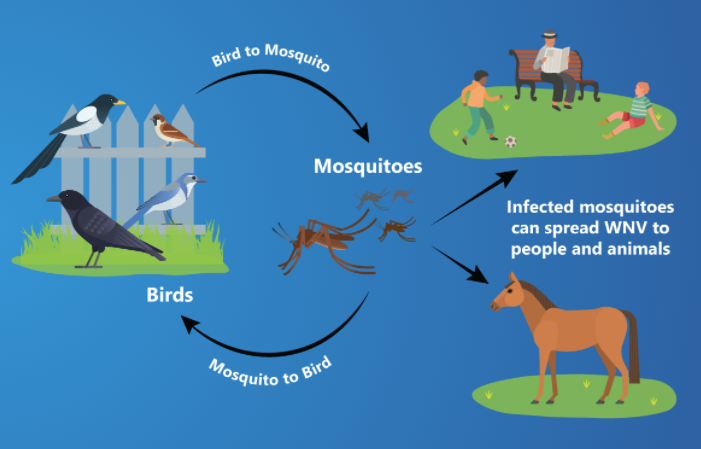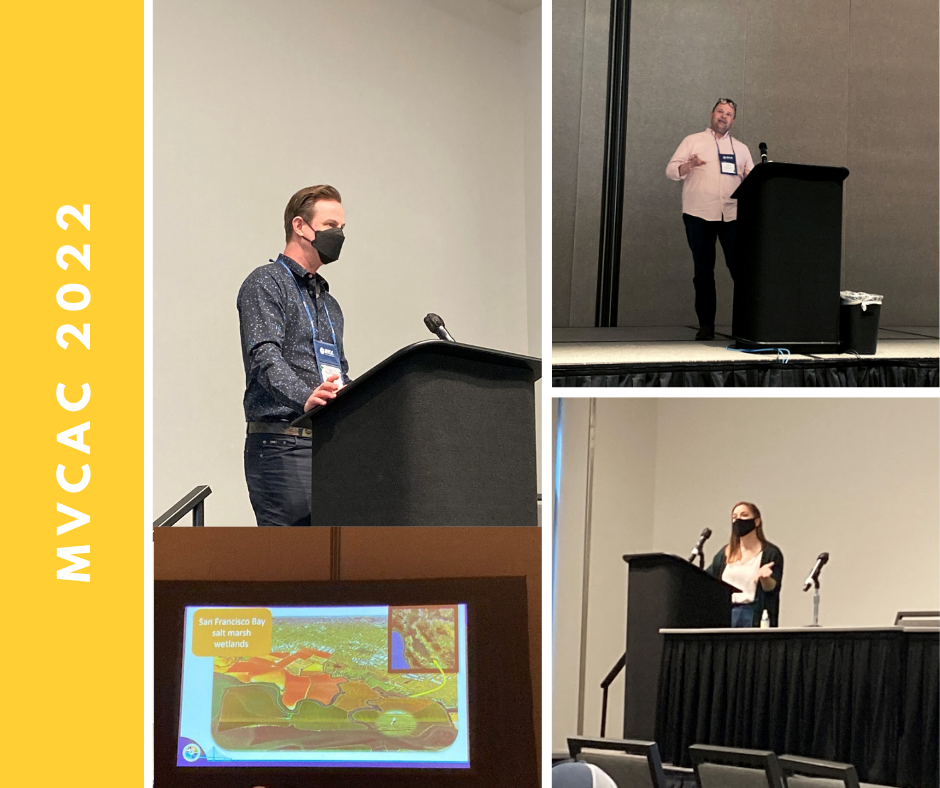Spring Newsletter 2022
Spring 2022
Quarterly Newsletter and Updates

Third Grade Mosquito Life Cycle Curriculum is Pilot Testing!
Now that schools are fully back in person, we are rolling out a pilot program of our mosquito life cycle mini unit. The NexGen standards-aligned curriculum is specifically for third grade. The mini unit contains a series of lessons and one project about the mosquito life cycle and the simple actions individuals can take to reduce mosquito risk. Many mosquito abatement districts provide classroom-based education, and this unit is adapted from established programs in Marin-Sonoma and Lee County in Florida. Teachers in Newark Unified and San Leandro Unified have volunteered to test the curriculum during the spring semester and provide feedback to improve the curriculum. The goal of the mini unit is to empower students with knowledge of mosquito habitats, which enables them to remove standing water in their communities. Children, especially between the ages of 8 and 14, can be enthusiastic educators to their families and peers. Our hope is by cementing this social norm now, they will carry it forward throughout their lives.
Two New Trustees Join the ACMAD Board

In early 2022 we welcomed two new trustees to our board, Councilmember Courtney Welch for the city of Emeryville, and Tyler Savage for the city of Alameda. To learn more about our new trustees, check out our webpage, www.mosquitoes.org/board-of-trustees.
We thank our outgoing trustees, Wendi Poulson from Alameda and Betsy Cooley from Emeryville, for their years of service.
West Nile Reminder

Spring has arrived, and along with more pollen in the air, another annoyance is back, the threat of West Nile virus (WNV). The virus is endemic in California, meaning it regularly occurs and is established in a community. In Alameda County we have not had a human case in years, but we have consistently detected WNV in birds, specifically crows and ravens. Wild birds are the animal reservoir of WNV. When certain birds become infected with WNV, they carry a high level of virus in their blood. If a mosquito bites an infected bird and feeds on its blood, the mosquito can become infected and pass the virus on to people or other animals that they bite. Not all birds that are infected with WNV will get sick, but WNV can make some birds very sick and even cause death. Signs of WNV in birds may include uncoordinated movement, a lack of energy, and difficulty breathing. Starting April 11th, 2022 the California WNV Call Center will reactivate and if a dead bird is reported in Alameda County, our District will pick it up and test it for WNV. If a bird is positive, we set up mosquito traps around the location the bird was found to determine if there are WNV positive mosquitoes in the area. The best way to protect yourself from WNV is to reduce mosquito habitats in and around your home by removing standing water, and wearing long, loose clothing and insect repellent when you visit mosquito heavy areas.
To learn more about West Nile virus, visit https://westnile.ca.gov/
Social Media Moment
.png?ixlib=rb-1.1.0&w=2000&h=2000&fit=max&or=0&s=c4c7ef69c783a5b8a5adc8b967c669c3)
As part of our strategy to reach a broader range of residents, we have made renter specific materials and advertising, so renters know they do not need to go through their landlords to request services. If you find mosquitoes in your home or business, you can make a service request here.
Conference Updates

Winter is a busy time for conferences. Our entire staff attended Mosquito and Vector Control Association of California's conference in Sacramento, and a few staff members attended American Mosquito Control Association's conference in Jacksonville, Florida.
Presentations from our staff included:
MVCAC:
Mark Weiland - Mr. Mister: Rockin’ the Aedes of the San Francisco Bay Salt Marshes
Emily Estus - Equitable and Effective Practices for Mosquito Abatement in Alameda County: Challenges and Solutions
Eric Haas-Stapleton moderated the UAS Symposium
AMCA:
Eric Haas-Stapleton - Will AI Brick the Entomologist?
Mark Wieland - Mr. Mister: Rockin’ the Aedes of the San Francisco Bay Salt Marshes
Sarah Lawton led multiple meetups for the Young Professionals group
Public Events for Spring 2022*
April 2 Khmer New Year Celebration at Peralta Hacienda Park in Oakland
April 16 Earth Day at the Oakland Zoo
May 14 and 15 Downtown Livermore Festival
June 19 Juneteenth Festival in Berkeley
*events are subject to change. Check our website for the most up to date information
West Nile Virus Location Update

As a best practice, our lab will test suitable dead birds for West Nile virus (WNV). If you come across a dead bird please report it online at www.westnile.ca.gov. Mosquitoes can breed all year long in the Bay Area so preventative activities such as removing standing water, adding mosquito fish to ponds, troughs, and neglected swimming pools, reduce our risk of West Nile virus. Now is a great time to check for standing water in your yard and drain or cover anything that will hold water longer than 4 days. This is especially true when we have days of heavy rain in followed by days with lots of sunshine. Visit our backyard checklist to see common places where mosquitoes produce.
